“Forever is over and history has begun”— Yassin Al Haj Saleh
The rule in Syria always used to be that you never talk politics in a taxi, as the taxi drivers were all thought to be in the employ of the mukhabarat. Now, everything has changed. Taxi drivers told us of being imprisoned in Sednaya Prison under Hafez Al Assad, of their thoughts of Hayat Tahrir Ash-Sham, of their hopes and concerns for the future of Syria.
And of course, it’s not just in the taxis. In Syria right now it seems like everyone is talking. We visited for three short days in early January, it was our first time going back in over 14 years. The Syria border officer asked why we were there – a Palestinian with a western passport with deep family links to Syria, her Irish husband who in the past had lived in Syria, and a Dutch friend, who had also resided here. The old border computer system was the same, and the old family address came up. Friends we later met told us that when their names were inputted into the system, the border officers could see which security branch they were wanted by. One month previously there would have been an interrogation, torture or death, but now, they just laughed about it with border officials.
Driving the familiar road from Jordan to Syria, through Deraa province, with its red brown earth and black basalt rocks piled up, was emotional and unbelievable — had we really just crossed this border that we haven’t been able to for so long?
The road was very quiet. The taxi driver explained how things had been before the fall of the regime. There were many (now abandoned) checkpoints on the roads, and previously at each one they took money, which meant he hardly made a living. He was hopeful about the future but cautious. He is a Sunni, Damascene man. He said he and many others were not accustomed to the more conservative form of Islam that the liberators had brought to Damascus, and he was worried about this, though hopeful that Syrians will find a way. We drove past the remnants of a huge checkpoint on the highway towards Damascus, the small security search rooms scattered around it, empty. It was eerie to see these, to know the nightmare they represented, where people would be picked up, and in many cases detained, or disappeared. A physical manifestation of the state of fear that had been there.
The capital
As we neared Damascus center the roads got busier, and our previous memories, 14 years old but still so fresh, clashed with the new realities. Petrol was now sold in bottles on the side of the roads, brought in from Lebanon, as it seemed no petrol stations were open. Money was so inflated; trunks of cars were full of cash, working as currency exchangers. The last time we were in Damascus the rate of exchange was 50 lira to $1. Now it is 11,000 to $1. There was more visible poverty. The new flag (an older flag adopted by the revolution) hung everywhere, painted on walls, and bollards. Previously everywhere, now the only images of the Assad family we saw were destroyed. We came across the Officers Club in downton Damascus, where images of Assad, the father and son, were put on the steps into the building, so whoever walked in had to step on them. This was unimaginable. We still couldn’t believe it even though we saw it. The cumulative effect was an emotional overload, a combination of euphoria and heartbreak, hope and fear. Everywhere we went, everyone we met, said it felt like a dream. And it did feel like a dream, a dream following an unbearable nightmare.
Being back in the city was familiar, but so different. The city center had not had much investment or development since 2010 — it looked the same, but had become more worn. The old alleys of the Old City were thronging with people. Stalls selling sweets abound, rainbow marshmallows, multi-colored hard candies, sour snakes and Turkish delight. Families were out for a walk to celebrate. It felt like Eid. We went to Bekdash — perhaps one of the best ice cream shops in the world, which makes milk ice cream with pistachios, hand pounded fresh everyday to a musical rhythm. We complimented them for their new t-shirts with the new flag on them, and the ice cream maker told us they had them ready and waiting. Everyone goes for ice cream here, families, couples, young and old, and HTS fighters with their kalashnikovs. Ice cream makes everyone happy and the sign on the wall proudly stated, “6:18 am 8/12/2024 Syria gained it’s freedom.”
Alongside the buzz of change is the imagery and culture that prior to December 8 would have gotten you arrested or worse. Revolutionary and freedom imagery and paraphernalia is sold everywhere you go in Damascus — the “new flag” hangs in the center of the souk and is available for sale at stalls. A wide variety of revolutionary scarves, stickers, maté tea straws, t-shirts, hats, and pins abound. The revolutionary humor that was so present in Syria despite everything endured, with socks for sale with an image of the deposed leader saying “we have stepped on you Assad”, a mug with the face of Assad along with the slogan “Father of underwear” (Abu Kalson) in reference to the revealing photos of Assad that were discovered after he fled. One of the key voices in the revolution was Abdul Basset al-Sarout, who died after a battle with the regime in Hama in 2019. His face is now everywhere, on scarves, pins, flags, and even on the Ummayed monument in central Damascus. Revolutionary music blares from the stalls of the Hammadiya souk.
The formal arts sector also is engaged — it’s all happening so fast it is hard to keep track of, but during our brief visit we were invited to visit a new publishing house and a new revolutionary arts atelier in a gallery, along with meeting people moving a multilingual (Kurdish, Armenian, Syriac and Arabic) radio station to Damascus and seeing a print copy of a Communist newspaper in Damascus. All of these initiatives in Syria are for the first time ever. As the esteemed Syrian thinker Yassin Al Haj Saleh said following the overthrow of the regime (in relation to the old phrase “Assad forever”)— “Forever is over, and history has begun.”
Tend the graves
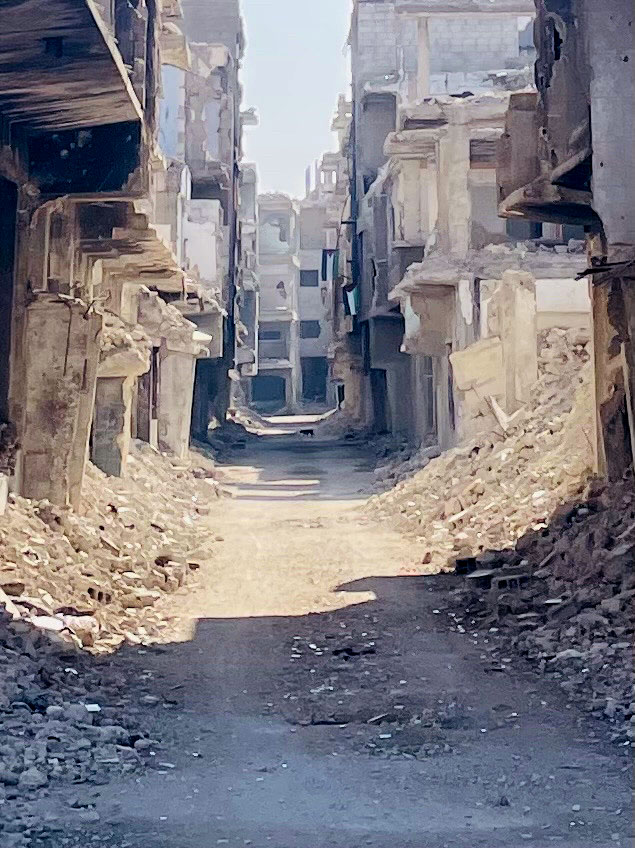
Alongside this, obviously, the country has been devastated. There is now mass poverty and a lack of basic services. Suburbs, neighborhoods, villages, areas are in ruins. Electricity is either absent, or only available for one hour per day in much of the country. In Yarmouk, the majority Palestinian area of Damascus, where many of our friends were from and lived, the level of destruction and devastation is hard to describe. Prior to 2011, Yarmouk was home to the largest Palestinian population in Syria. Now it is practically empty. Through the early years of the uprising, the Assad regime subjected it to a two year starvation siege and mass bombardment. Following this, and with the camp in ruins, ISIS/Daesh and various other extremist factions set up there, leading to further violence. The center of Yarmouk was completely devastated, block after block of flats and homes bombed and destroyed. Complete destruction. It’s eerily quiet. Wild dogs roam the destroyed streets. The only evidence of the former inhabitants is the occasional ceiling rose for a light visible on a collapsed ceiling, or a glimpse of a painted room, bright against the destruction. And yet even in this, people are trying to exist. Among the destruction there might be one room that remains, and it will have someone living in it. A few small shops have opened. Palestinian flags still fly in Yarmouk.
Yarmouk is only one of a huge number of destroyed neighborhoods. Just five minutes from Damascus old town are the suburbs of Jobar, Douma, and Harasta. All destroyed, bombed and flattened like so many others neighborhoods across the country.
Despite these difficulties, however, since Dec 8 there has been an outpouring of effort by those in Syria , caring for the country and those who live in it. As we walked around Damascus you could see the streets being cleaned, shops were open, cafes were buzzing. Rawda cafe in downtown Damascus has become a hub where people meet and celebrate this new reality. We kept bumping into people, speaking openly about how they felt about things, their hopes, their critiques. This was unimaginable yet was the case everywhere. Conversations were so wide ranging — everyone wants to speak. Cafes reverberate to the sound of conversation late into the night. Formal, Syrian-led civil society initiatives and political movements are already active openly in the country, working tirelessly on the many needs faced in Syria. This includes the Syrian Women’s Political Movement, holding space for an overtly feminist agenda across the political spectrum, the Syria Campaign, who work with Families for Freedom and others on transitional justice, the White Helmets, who unbelievably are now based out of the Damascus Fire Station, and many more.
While in Syria we visited the graves of Yasmin’s grandparents, in a graveyard on the edge of Damascus old town. We had the opportunity to tend the graves, to clean them, and make sure they were maintained. And in the graveyard, all we could think of was the hundreds of thousands, the millions who don’t have that opportunity. Over 300,000 people were killed in Syria since 2011, the vast majority by the Assad regime. Over 130,000 people were forcibly disappeared. Their loved ones have not, and may never have, the chance to visit their graves. We thought of our friends and their loved ones who shared that fate. Friends like Bassel Shehadeh, the young filmmaker and fledgling environmental rights activist in Syria. In 2012 he dropped out of his scholarship program in Syracuse and returned to Syria to help train filmmakers covering the revolution. He was killed by regime bombing in Homs in May 2012. And Father Paolo Dall’Oglio, the founder of the Mar Musa community, veteran advocate and practitioner of inter-faith dialogue who was expelled from Syria by the regime in 2012 and returned to the rebel held areas in the north to support the revolution. As part of this he undertook to try and work for the liberation of prisoners held by ISIS/Daesh, he was disappeared by them on 29 July 2013 and, despite rumors, has not been heard of since. Or Bassel Safadi, computer programmer and hacker. He worked to get footage of demonstrations out of the country and for this was arrested by the regime, sent to various prisons and ended up in Sednaya prison. In 2017, after years of searching for him his wife, Noura, was given access to a death certificate for him stating he died in 2015.
Through the looking glass
The situation is obviously fragile, and there are many players trying to get their points across, including more extremist elements. But this is normal in any society, and as in any society the question is how do all these differing opinions share the same story of coexistence. So far in revolutionary Syria this seems to be holding well, but the fear is that the more that outside forces get involved in directing rather than just supporting Syria, the more challenging this will become.
Syria is in the midst of huge change. This was a proper revolution, a complete shift of power, and this shift is still in flux. A question we face as those outside of Syria is what can we do. The main thing we need to do is to listen to Syrians, and lobby our governments to provide financial support to Syrian civil society, for the rebuilding of the country, and not to meddle in its affairs. Turkey and the US are currently fighting in the north of the country. Israel, whilst continuing its genocide in Gaza and attacks on the West Bank, carried out multiple bombing raids and continues to occupy parts of the south of Syria. All of this must stop.
We are through the looking glass in Syria, it is fragile, but there are so many opportunities for Syria to become the place it could never be while being held hostage by a criminal regime. Transitional justice will be key to this, and this is one space where international engagement and expertise feels crucial, and this process needs to begin very soon.
The spirit of Syria that we knew remained — the humor, hospitality, warmth, and openness. Leaving Syria was difficult. When we were back in the Syrian border office before entering Jordan, the same officials seemed to be there, again with someone from HTS overseeing their work. This time music was playing in the background, music that would have been unimaginable to hear in an official Syrian building: “Lift your head up high, You are a free Syrian.”



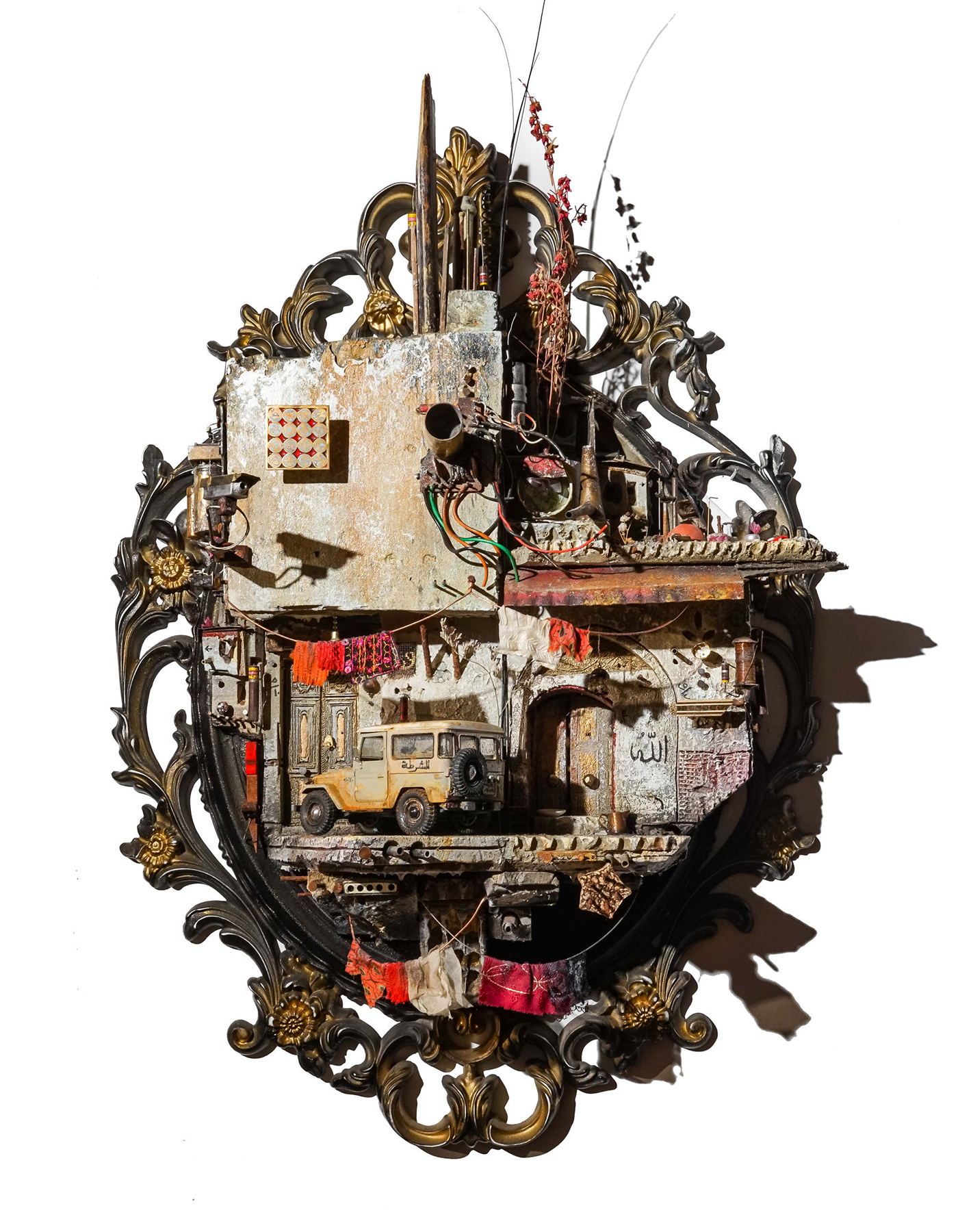
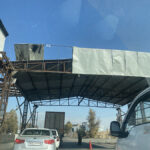
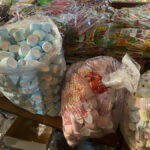
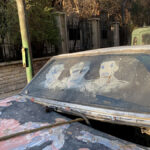
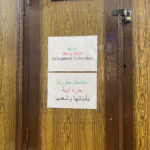
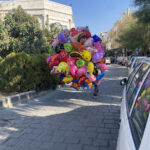
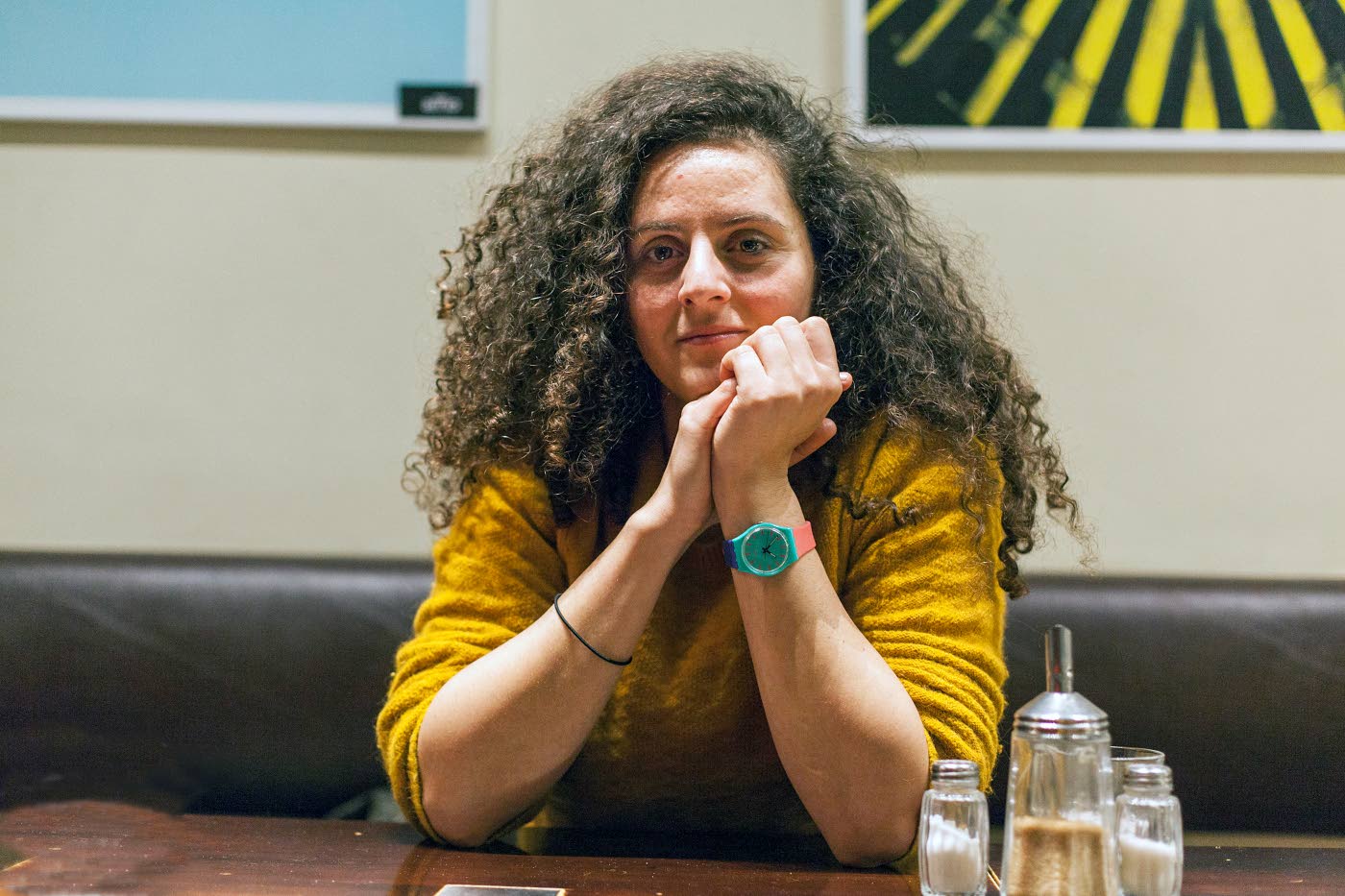
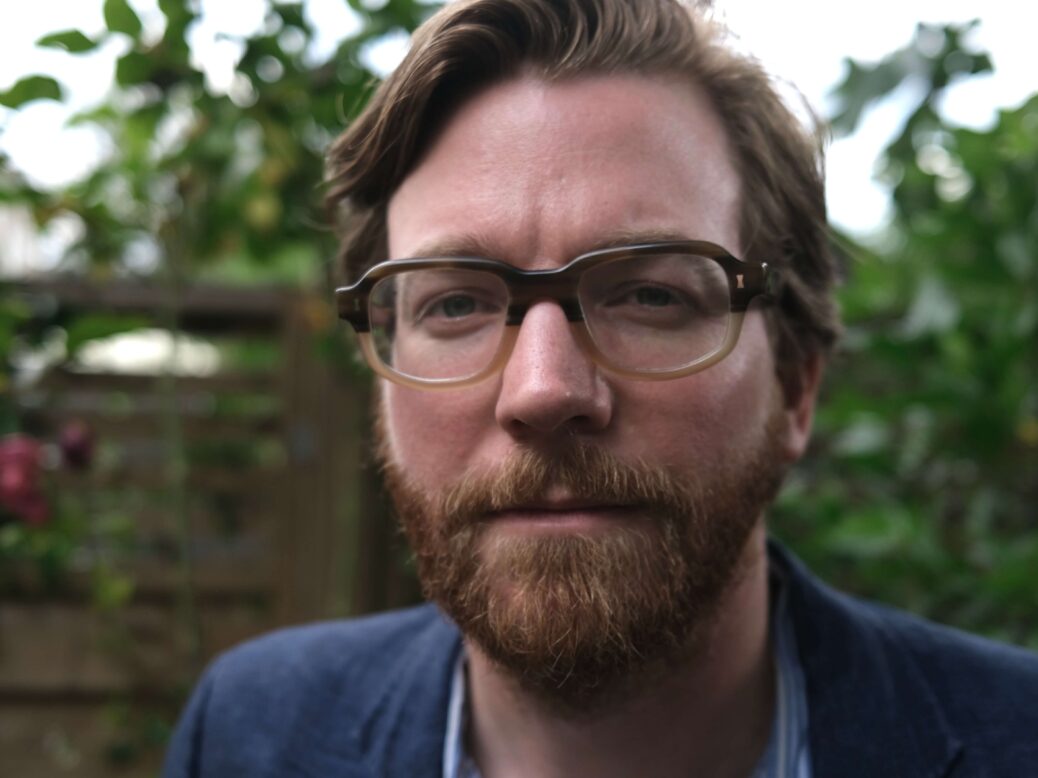
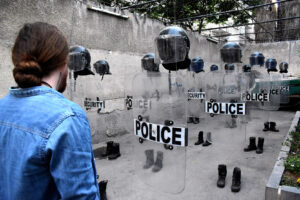




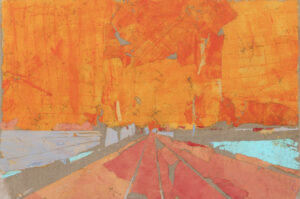
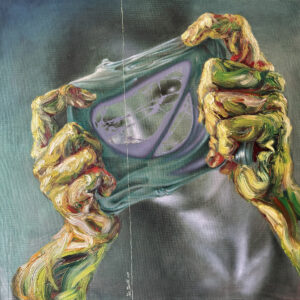



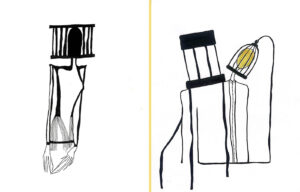







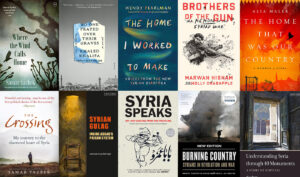




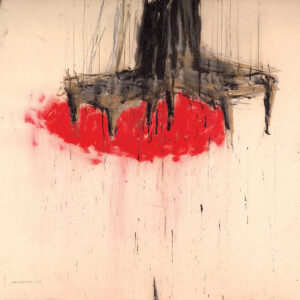






































































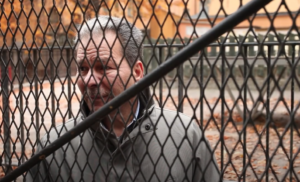









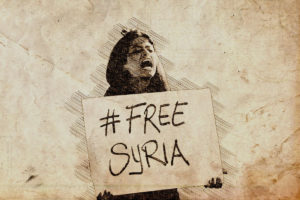









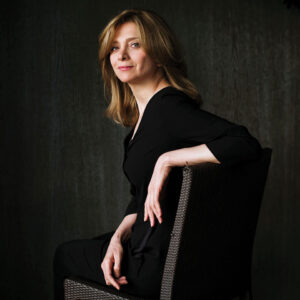
Thanks so much for this article speaking with love about Syria .i felt as if I am with you .
So happy to read this .
Emotional and insightful
It is good to hear of a revived spirit of the brilliant Syrian people. Such needless suffering. As in Palestine. For what? For why?
Thank you for opening a window to glimpse into a free Syria. It is heartening to see the Syrians’ spirit after what they have endured for so long.